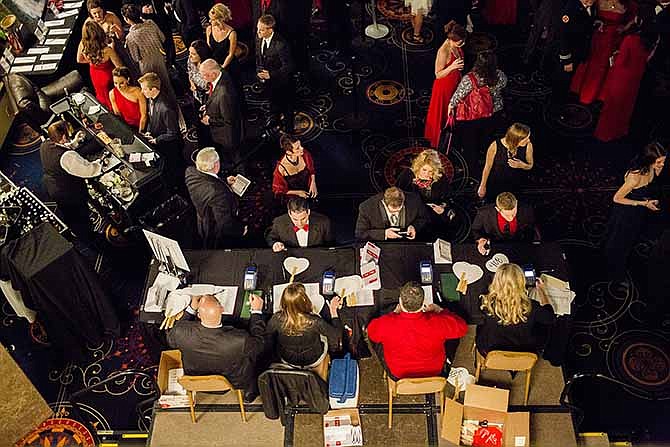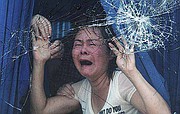If it weren't for advancements in research and technology, Max Cook might not be alive today.
Cook told the tale of his journey of heart problems Saturday night, where he was named the American Heart Associations 2014 Mid-Missouri Heart Ball Star. Cook told his story as part of the 23rd Annual Mid-Missouri Heart Ball, held Saturday at the Capitol Plaza Hotel in Jefferson City. The Heart Ball is an American Heart Association fundraising event that celebrates lives saved and improved by research and education.
Cook's heart first got his attention in 1995. Shortly after hearing his father had died from "a massive stroke," Cook traveled to Oklahoma to be with his family. That same week, the Alfred P. Murrah Federal Building in downtown Oklahoma City was bombed, sparking concerns for Cook about family members who could have been an affected.
"It was a tragic and sad time when it all happened," Cook said. "There was so much going on that week."
It was while he was watching a memorial service for victims of the bombing that he started to have chest pains, Cook said, which led to a four-way angioplasty.
Five years later, on his wife's birthday, Cook was in trouble again. This time, he needed a quadruple bypass, which was to be done the following day. Though an already trying time, Cook said the worst part actually came after the surgery itself.
"I probably had my very worst episode of this whole journey after I came out of bypass surgery and was in recovery," Cook said. "In my narcotic-induced state, I asked the nurse to go to Aruba with me in front of my wife and our neighbor ... I survived both the surgery and my drug-induced stupidity."
In 2007, while visiting Colorado, Cook again started noticing some distressing signs. While playing golf, Cook noticed that every time he bent down to get the ball, he'd become lightheaded, though he figured it was likely the altitude and moved on.
But the next month, Cook said, he began to have terrible chest pains.
"My body was really talking to me," Cook said.
It turned out his bypasses had become blocked and he needed three stents to be put in.
"Technology and advancements in research were really taking care of me," Cook said.
Then last year, after taking some stress tests, his cardiologist called wanting to talk.
"My heart was only working at 50 percent," Cook said.
One of Cook's bypasses, in the right coronary artery, was 100 percent blocked in a location where a stent could not be placed and he was not getting enough blood flow to his heart.
He went to a doctor in Columbia, who is one of the few doctors in the country that performs a new procedure called chronic total occlusion, which was able to open the blocked artery.
"Advancements in research and education and technology and practice have benefited me not once, but four times," Cook said. "The importance of what the Heart Association does ... is for that research to continue."
"It's helped save my life ... it may save your life or a loved one's life."


